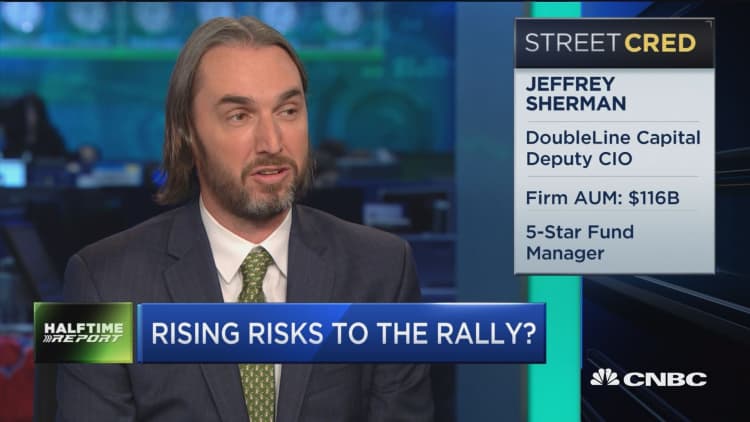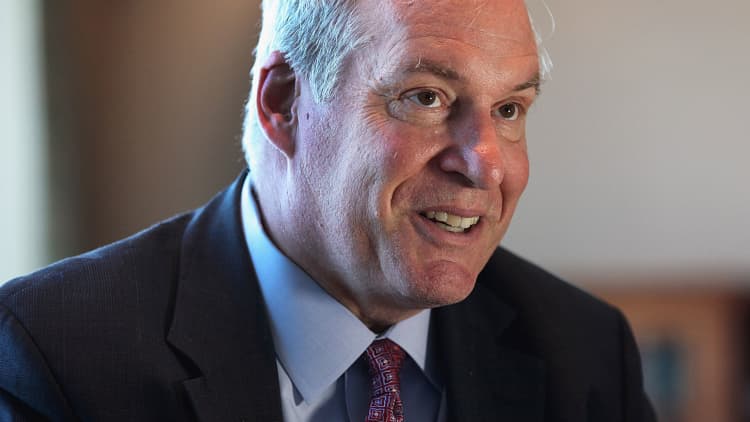
Global fund managers are making big bets , but they are not expecting U.S. tax reform to bring significant gains to the stock market or other risk assets.
According to the monthly Bank of America Merrill Lynch survey, global fund managers are rotating into banks and Japan and out of utilities, bonds and emerging markets. Eighty-two percent say they expect bond yields to rise in the next 12 months, with a record 85 percent saying bond prices are overvalued. Bond yields move opposite price.
According to the survey, 68 percent of the global fund managers expect to see U.S. tax cuts in 2018 but they do . Just 13 percent expect it to have a bullish impact on risky asset prices, while another 13 percent do not expect it to be passed by Congress at all.
However, they did raise their allocation slightly in U.S. equities, to where they are now — 21 percent underweight, versus 28 percent last month.
With their focus on rising rates, the managers now see a or European Central Bank as the biggest red flags for markets. Just behind that is North Korea, which was seen as the biggest risk in September.
Allocation to banks rose to a net 42 percent overweight, from just 22 percent in September. That was the highest allocation to banks in the history of the survey and the largest one-month increase in three years.
Allocations to bonds fell to 60 percent underweight, the lowest in seven months, and allocation to emerging markets fell to 41 percent overweight from 47 percent last month.
The survey was conducted Oct. 6 to 12 and included 179 participants.
WATCH: Boston Fed President Rosengren: Gradual rate increases are appropriate



